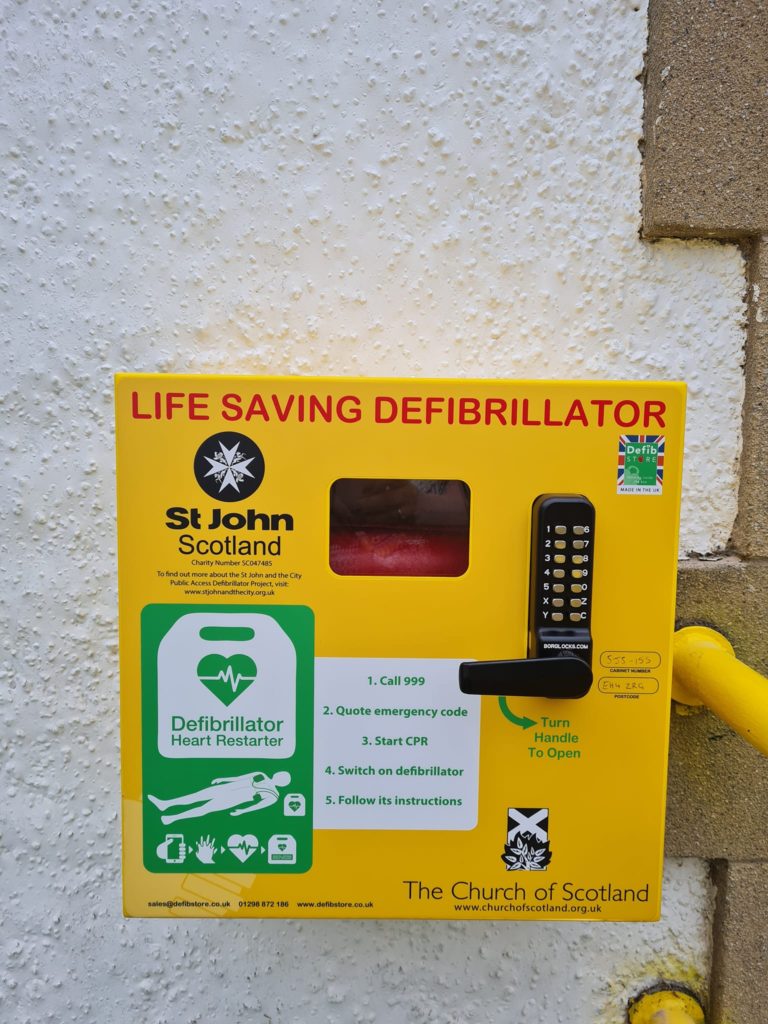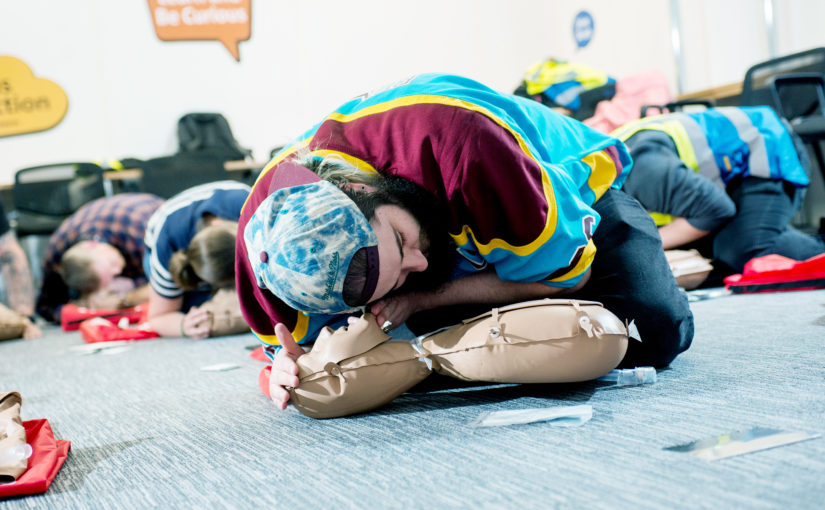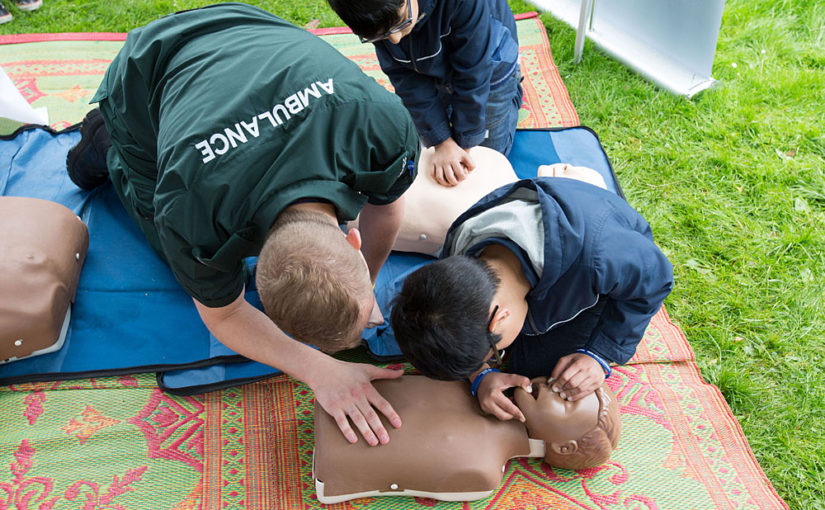The Circuit: Charities and health organisations urge people to register their defibrillators on database to help save lives

A new campaign has been launched across Scotland to urge defibrillator owners to register their devices on a national database to help save more lives from cardiac arrests.
Leading charities and health organisations have come together calling for defibrillators to be registered on The Circuit – The national defibrillator network, which connects defibrillators to NHS ambulance services across the UK, so that in those crucial moments after a cardiac arrest they can be accessed quickly to help save lives.
- There are around 3,200 out-of-hospital cardiac arrests every year in Scotland, but only one in ten people survive.
- Every minute that passes without CPR or defibrillation reduces the chances of survival by up to 10 per cent in some instances, but immediate CPR and defibrillation can more than double the chances of survival.
- It’s estimated that public-access defibrillators (PADs) are used in less than one in ten out-of-hospital cardiac arrests across the UK – often because 999 call handlers aren’t always aware that a defibrillator is available nearby because the ambulance service hasn’t been told about it. If they don’t know it is there, they can’t direct someone at the scene to retrieve it while waiting for the ambulance to arrive.
To help save more lives, The British Heart Foundation (BHF), Resuscitation Council UK (RCUK) St John Ambulance and Association of Ambulance Chief Executives (AACE), are urging people who look after defibrillators in places such as offices, communities, shopping centres and leisure centres, as well as in public places, to register them on The Circuit.

James Jopling, Head of BHF Scotland, said: ““Every second counts when someone has a cardiac arrest and, alongside CPR, prompt use of a defibrillator is critical in giving them the best chance of survival.
“To put it simply, knowing where the nearest defibrillator is could be the difference between life and death.
“The Circuit is pioneering technology which will help emergency services direct bystanders more quickly to a defibrillator when someone collapses with a cardiac arrest. But for The Circuit to save lives, it is vital that unregistered defibrillators are put on the system. If you, or somebody you know is a defibrillator guardian, then we urge you to register your device on The Circuit. You could help save a life.”
Pauline Howie, Chief Executive of the Scottish Ambulance Service, said: “When someone calls 999 to report a cardiac arrest, the call handlers in our control rooms are trained to provide the location of the nearest registered defibrillator within 500m of the call.
“Studies show that using a defibrillator within three minutes of collapse, along with starting CPR, can greatly increase chances of survival.
“This swift action can make a real difference, and The Circuit is a vital tool in helping increase bystander action to help someone in cardiac arrest. Over the last five years, the Save a Life for Scotland (SALFS) partnership which includes SAS, the Scottish Government and the Scottish Fire and Rescue Service has equipped over 640,000 people with CPR skills, and the survival rate after an out-of-hospital cardiac arrest has doubled to one in ten people.
“However, there’s more we can do, and to help save even more lives, we would urge everyone to register the defibrillators that they are responsible for on The Circuit, so that they can be easily located and accessed when needed.”

Dr James Cant, Chief Executive Officer at Resuscitation Council UK, said: “A cardiac arrest can happen to anyone, anywhere, at any time. Not only is defibrillator use a crucial step in the Chain of Survival, the presence of defibrillators in public places can help raise awareness and stimulate people to think about what they would do in an emergency.
“Survival depends on all links in the Chain of Survival being carried out quickly. This means early recognition and calling for help, early CPR, early defibrillation and post resuscitation care – and The Circuit plays a vital role in giving people their best chance of surviving a sudden cardiac arrest.”
While the 14 UK ambulance services have previously had their own regional databases, The Circuit will eventually replace these with a new national database that lets the ambulance services see defibrillators across the UK once it has been rolled out. This will allow them to direct people to the nearest defibrillator when somebody is having a cardiac arrest, wherever they are.
The Circuit, which is already live in 12 of the 14 ambulance service regions across the UK[1] and will become nationwide soon, could help to save thousands of lives – but it is vital that as many defibrillators as possible are registered on the database for it to work effectively.
It’s free to register your defibrillator onto The Circuit, and you only have to do it once. You can also register multiple defibrillators if you are the guardian to more than one.
Visit TheCircuit.UK for more information or to register your defibrillator.



















